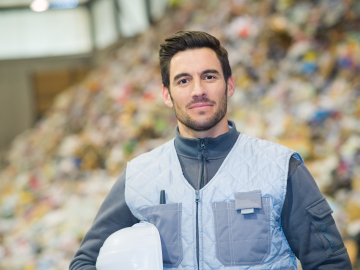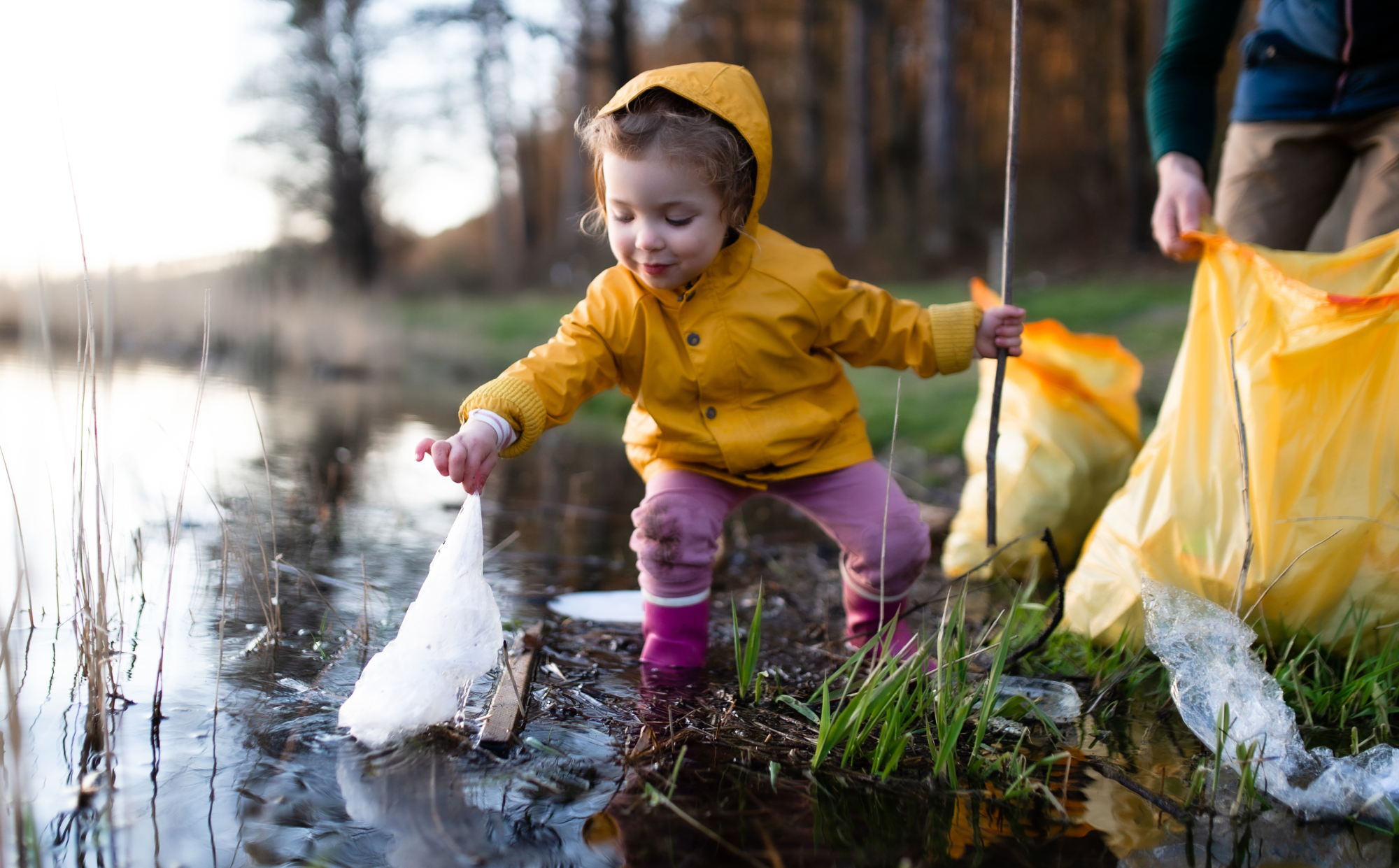We are Verpact
We are Verpact
We play a central role in making the packaging chain in the Netherlands circular. Operating under the legal producer responsibility for packaging (EPR), we ensure that packaging is collected and recycled in a smart and efficient manner, including through the deposit system. We also assist producers and consumers in making circular choices and promote reuse. In doing so, we preserve valuable resources in the chain, reduce litter and microplastics, and minimize the environmental impact of packaging.
Supporter van Schoon, aimed at preventing litter, is an initiative of Verpact. The Knowledge Institute for Sustainable Packaging (KIDV), which helps organizations in making informed and realistic packaging choices, and Statiegeld Nederland are also part of Verpact. Read more about the Dutch recycling results for packaging, including reuse.
Plastic packaging, cans and drink cartons have value, if they’re emptied properly. The more carefully we do this together, the greater the chance these materials will be successfully recycled into raw materials for new products. By emptying and separating packaging, we make it more recyclable. A small action with a big impact.
Even if you live in an area where all waste goes into one bin (post-separation), it’s still important to empty packaging and dispose of it separately. Together, we ensure that separated waste is properly processed.

Convenient recycling for a circular sustainable system
Our climate is under pressure. Global CO2 emissions still need to be cut drastically in this decade. This means being more economical with our everyday products and making more sustainable choices. Everyone plays a part in reducing the climate crisis and making the world a cleaner place, and this includes the packaging industry too.
We champion convenient and cheap recycling systems and a circular economy in which packaging material is a raw material, and stays this way.

Producer responsibility
Producers and importers are responsible for collecting and recycling packaging they release on the Dutch market. We administer this producer responsibility, on their behalf, as efficiently and effectively as possible.
How do we do this?
The system works according to the polluter-pays principle. Producers and importers, all businesses that make or use packaging, are responsible for collecting, sorting and recycling their packaging. This is carried out collectively by Verpact (formerly Stichting Afvalfonds Verpakkingen or 'Packaging Waste Fund').
How do producers and importers contribute?
Producers and importers are obligated to collect and recycle packaging, although they have outsourced this responsibility. However, they must still declare the quantity of packaging they introduce to the market each year. This is done through a declaration, which must be submitted within 3 months after the end of a calendar year. Because costs are incurred throughout the year for the packaging they introduce to the market, these costs are pre-financed. To do this, an estimate is made for each company of the weight of packaging that will be introduced to the market in the upcoming calendar year.
The declaration covers all packaging and all materials used in these packages, namely: glass, paper and cardboard, plastic, aluminum, other metals, wood, and other material types (such as jute, stone, ceramics).
List of revenues and costs for 2022 for Verpact
Producer responsibility for packaging
By law, producers and importers are responsible for the collection and recycling of the packaging that they sell in the Dutch marketplace. We carry out this UPV (this being the statutory producer responsibility for packaging) on their behalf as efficiently and effectively as possible and also pay the resulting charges to the various parties in the recycling chain (collection, sorting and recycling).
Working at Verpact
How does the legislation work?
Producers and importers are, therefore, obliged to collect and recycle the packaging they have released on the market and to declare which legally regulated single-use plastics (including some categories of packaging) they release on the Dutch market. What are the actual implications of these obligations?
General Binding Declaration granted for packaging
The Ministry of Infrastructure and Water Management has declared the Agreement on Packaging Waste Management Contributions of the Packaging Waste Fund Foundation as generally binding. The agreement describes how producers and importers collectively implement the waste management structure for packaging. This ensures compliance with the extensive producer responsibility placed on producers and importers (PI's) of packaged products (the packaging industry).
The new generally binding is effective from 2023 to 2027, providing a five-year legal foundation for the waste management structure for packaging. This enables Verpact to continue carrying out its legal duties on a solid basis and efficiently implement new regulations collectively on behalf of the packaging industry. Verpact is pleased to have the trust of producers and importers who have agreed to extend the general binding.
For the past 10 years, Verpact has been responsible for the separate collection of packaging waste or post-separation of residual waste under the extensive producer responsibility, aiming to maximize the reuse or recycling of packaging. Our ambition doesn't stop here. Every day, we, together with all stakeholders in the chain, seek ways to improve further. Our goal is to close the packaging cycle as much as possible. This not only benefits the environment but also minimizes costs in the chain and preserves valuable resources.
Read the entire announcement here.

Our board of directors
The board of directors consists of:
- Hester Klein Lankhorst, Managing Director and Chairman of the Board
- Jeroen Kluiters, Finance Director
- Bianca Lambrechts, Operations Director
Supervisory Board
The Supervisory Board consists of:
- Arjen Gerritsen, independent chairman
- Erwin Bziuk, representative CBL
- Ronald Prince, representative FNLI
- Bert Roetert, representative CBL
- Jeroen van Vliet, representative FNLI
- Ed van de Weerd, representative RND